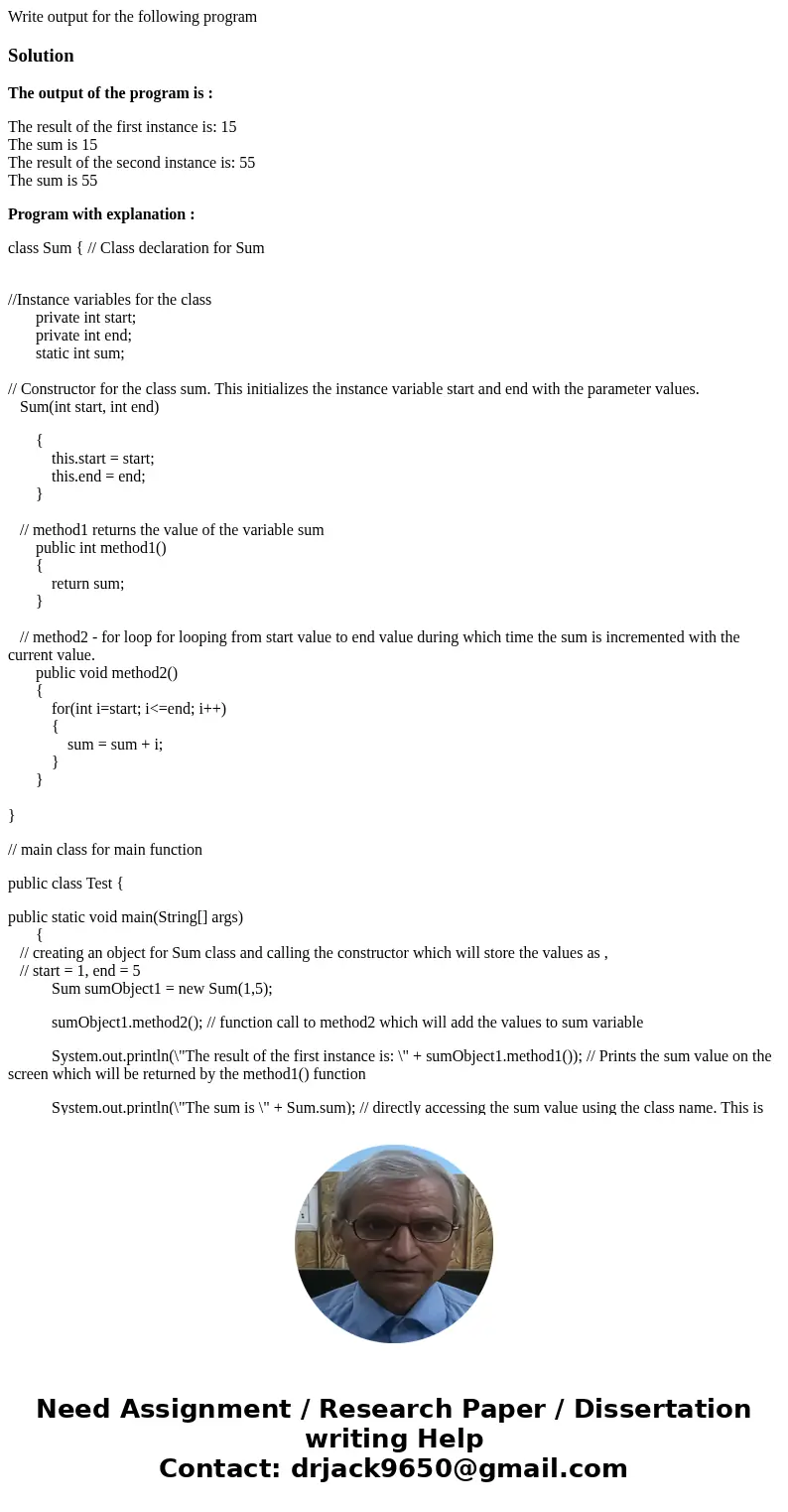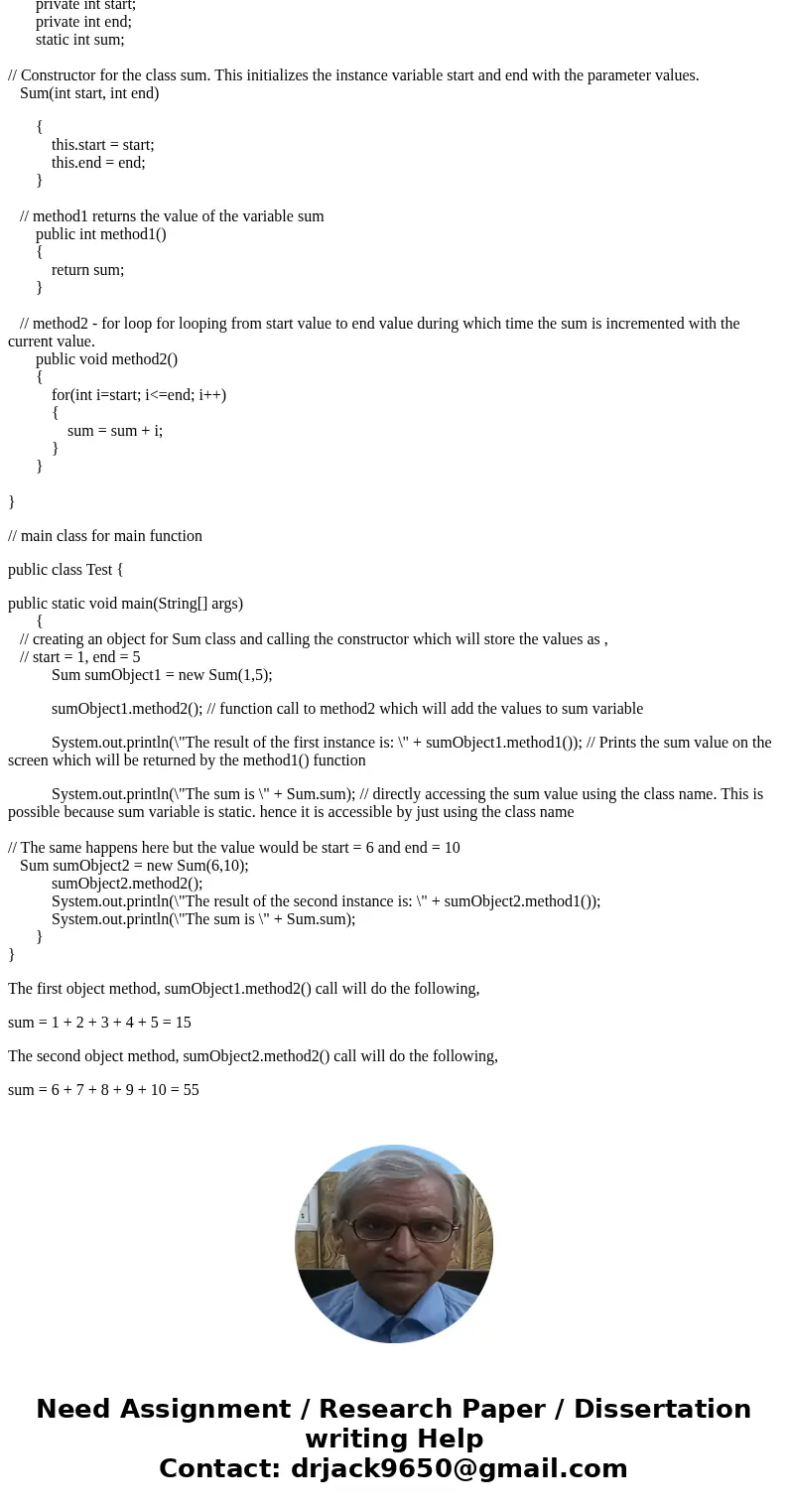Write output for the following programSolutionThe output of
Solution
The output of the program is :
The result of the first instance is: 15
The sum is 15
The result of the second instance is: 55
The sum is 55
Program with explanation :
class Sum { // Class declaration for Sum
//Instance variables for the class
private int start;
private int end;
static int sum;
// Constructor for the class sum. This initializes the instance variable start and end with the parameter values.
Sum(int start, int end)
{
this.start = start;
this.end = end;
}
// method1 returns the value of the variable sum
public int method1()
{
return sum;
}
// method2 - for loop for looping from start value to end value during which time the sum is incremented with the current value.
public void method2()
{
for(int i=start; i<=end; i++)
{
sum = sum + i;
}
}
}
// main class for main function
public class Test {
public static void main(String[] args)
{
// creating an object for Sum class and calling the constructor which will store the values as ,
// start = 1, end = 5
Sum sumObject1 = new Sum(1,5);
sumObject1.method2(); // function call to method2 which will add the values to sum variable
System.out.println(\"The result of the first instance is: \" + sumObject1.method1()); // Prints the sum value on the screen which will be returned by the method1() function
System.out.println(\"The sum is \" + Sum.sum); // directly accessing the sum value using the class name. This is possible because sum variable is static. hence it is accessible by just using the class name
// The same happens here but the value would be start = 6 and end = 10
Sum sumObject2 = new Sum(6,10);
sumObject2.method2();
System.out.println(\"The result of the second instance is: \" + sumObject2.method1());
System.out.println(\"The sum is \" + Sum.sum);
}
}
The first object method, sumObject1.method2() call will do the following,
sum = 1 + 2 + 3 + 4 + 5 = 15
The second object method, sumObject2.method2() call will do the following,
sum = 6 + 7 + 8 + 9 + 10 = 55


 Homework Sourse
Homework Sourse